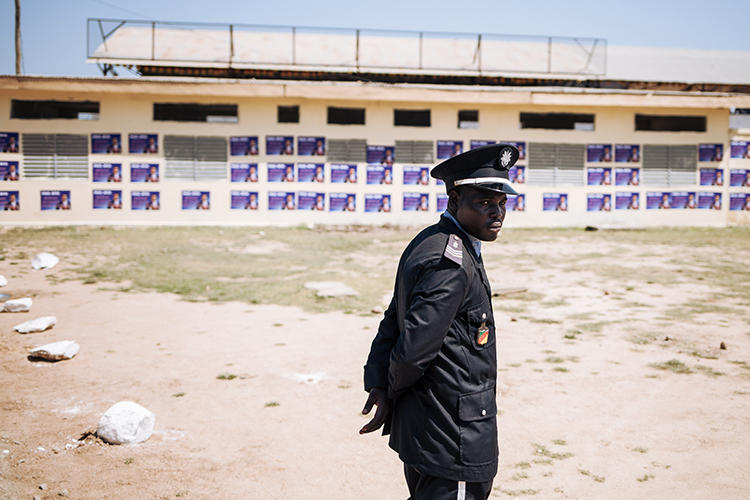New York, March 5, 2020 — Authorities in Cameroon should not contest journalist Adalbert Hiol’s appeal of a false news and defamation conviction and should let his newspaper publish freely, the Committee to Protect Journalists said today.
On November 7, 2019, authorities in Douala, a coastal city in southwest Cameroon, ordered Hiol, publisher of the privately owned Ades-Infos Jeunesse en Action newspaper, to be detained in the city’s central prison after he responded to a summons, according to court documents and an individual with knowledge of the case who asked not to be identified. Hiol was charged with false news, defamation, and insult, and was sent to the prison without his lawyer present, according to that individual and a charge sheet reviewed by CPJ.
The charges stemmed from a defamation complaint filed by Louis Richard Njock, the director of a regional hospital in Edea, a city south of Douala. CPJ reviewed a copy of the complaint.
On December 27, the Douala Bonanjo court of first instance found Hiol guilty of those charges and sentenced him to 18 months in prison and a fine of 2 million Central African francs ($3,381), according to those documents. Hiol was also ordered to pay Njock 10.5 million francs ($17,809) in damages and procedural costs, and his newspaper was barred from publishing for six months, according to those documents.
Hiol filed an appeal against the conviction on December 30, according to the court documents. He is due back in court on March 24 for his second appeal hearing, the individual told CPJ.
Not including Hiol, at least seven journalists were in detention for their work in Cameroon at the time of CPJ’s 2019 prison census on December 1, 2019. Hiol did not appear on CPJ’s 2019 prison census because CPJ was unaware of his case at the time. CPJ documented the imprisonment of another journalist in January.
“The number of journalists arrested in Cameroon just for doing their jobs is going in the wrong direction,” said Angela Quintal, CPJ’s Africa program coordinator. “Cameroonian authorities should not contest Adalbert Hiol’s appeal. They should free him immediately and should reform their laws to align with international standards for freedom of expression.”
Njock’s defamation complaint, dated April 2, 2019, accused Hiol of the same offenses for which he was charged, referencing 2017 and 2018 articles in Ades-Infos Jeunesse en Action criticizing his management of the hospital.
The November warrant ordering Hiol’s detention stated that he should be held until May 8, 2020. Hiol’s lawyer requested a provisional release after the journalist was sent to prison, but that application was rejected, according to the person who spoke to CPJ and court filings, which CPJ reviewed.
CPJ called and texted Njock on February 28, and did not receive any responses. CPJ missed a call from Njock’s phone number the following day, and Njock did not answer follow-up phone calls.
Joyce Ndjem, the national communications chief for the Cameroonian police, told CPJ in a phone interview that she would not comment on Hiol’s case unless a CPJ representative met her in person, and then the line disconnected.
When CPJ called Cameroonian Minister of Information Rene Sadi, a person answered the phone and said “hello” twice and then hung up. CPJ called again but no one answered.
